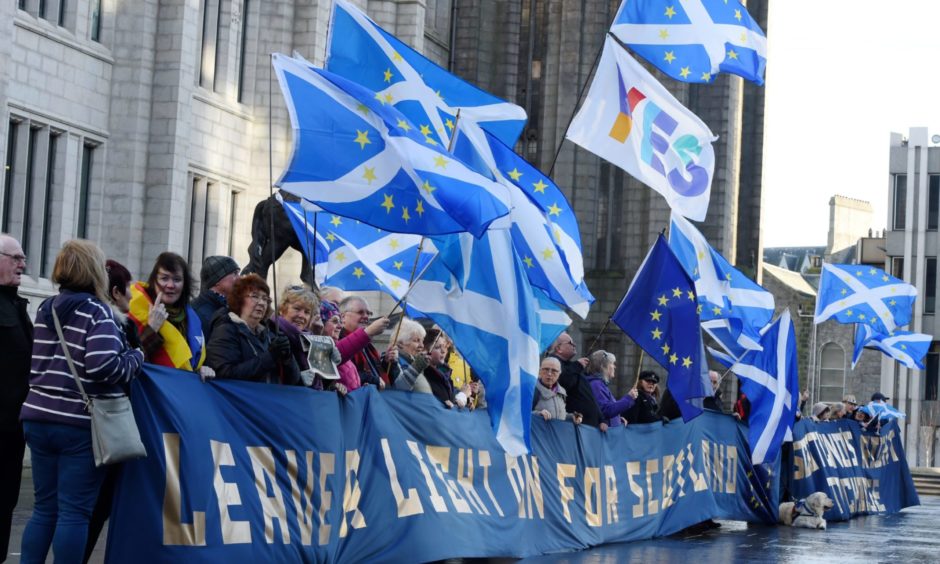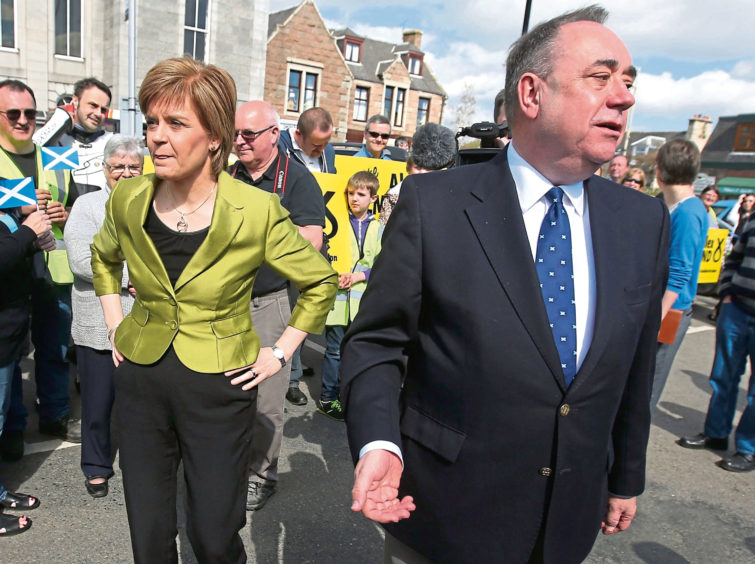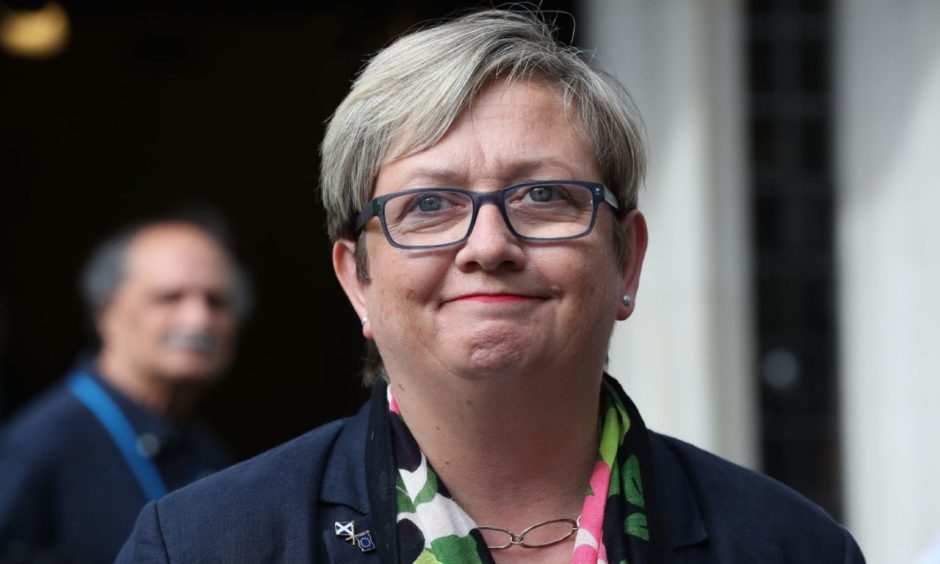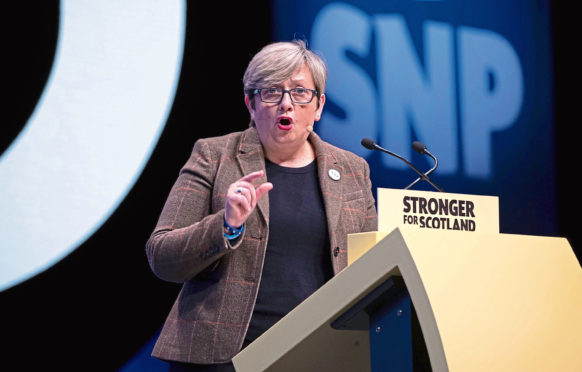The sacking of Joanna Cherry from the SNP’s frontbench at Westminster is a spectacular own goal by the Scottish Nationalists, one which could haunt them years from now when their rump remembers how close they once came to achieving their dream.
The party may have 47 MPs but most of them are nonentities, only memorable when they make mistakes, like Margaret Ferrier, the Covid carrying lockdown flouter.
Cherry stood out, especially when she deployed her QC’s brain to exploit the government’s Brexit shambles and challenged the prorogation of parliament.
Now the Edinburgh South West MP, removed as the party’s shadow justice and home affairs spokeswoman, will be looking for something else to get her teeth into and her parting shot leaves us in no doubt that it will be closer to home.
Throwing down the gauntlet to the leadership in Edinburgh, she said London was increasingly irrelevant to Scotland’s constitutional future and the SNP should ‘radically rethink’ its strategy.

Cherry has constantly defied Nicola Sturgeon by championing alternative routes to independence if Boris Johnson refuses to agree to another referendum after May’s Holyrood election.
She has also long been in the Alex Salmond camp of the SNP, hailing him as ‘the greatest leader the party’s ever had’ and standing by him during his trial last year.
But why have her foes in the SNP, presumably driven by the First Minister, chosen now to deepen the rift?
In just three months the Nationalists hope voters will give them the majority they need to push for a second independence referendum.
They have maintained a prolonged lead in the polls and have the Unionist parties on the back foot, approaching panic. This may be the movement’s best chance yet of making its case for separation.
The only real cloud on the horizon – apart from the fact that around half the population still need persuading – is the bitter civil war raging within the party.
This is threatening to erupt, with the former and current First Ministers both appearing at the Salmond inquiry this month. Unleashing the fury of Cherry at the same time seems an act of deliberate self-destruction.
Sturgeon could be excused for trying to discipline a loose cannon but spite against a rival may have got the better of judgement.
Thwarted by party machinations in her bid for the safe Holyrood seat of Edinburgh Central, Cherry will surely seek other opportunities to secure Scotland’s top political job when, or even before, it is vacant.
She is not only a cheerleader for Salmond but has her own devoted following among the rank and file, who have been in uproar since her demotion on Monday.

As she said herself, party members gave her a ‘resounding mandate’ in last year’s elections to the party’s ruling National Executive Committee, where she triumphed on a platform highly critical of Sturgeon.
Aside from fundamental differences over how to pursue independence, Cherry represents a culture at odds with the First Minister’s instincts, specifically on gender politics.
She has been outspoken in her opposition to the Scottish government’s gender recognition reform, which would have made it easier for people to legally change their gender identity.
The plans, shelved during the pandemic, have been a further source of conflict among Nationalists, sparking a recent exodus by younger activists who labelled the party transphobic.
Sturgeon, desperate to stem the tide, made an appeal ‘from the heart’ on social media, defending her party’s record on trans rights.
‘It grieves me deeply you have reached this decision…because you consider the SNP to be, at this stage, not a safe, tolerant or welcoming place for trans people,’ she said. ‘I will do everything I can to change that impression.’
Perhaps she was thinking of her troublesome colleague and sacrificed her to bring the deserters back into the fold. If so, it was a massive miscalculation.

Cherry said in an interview in 2019 that she had fought hard for women’s rights since coming out as a lesbian 30 years ago and would not be bullied into silence.
One of her allies, the staunch Salmond apologist Kenny MacAskill, said her dismissal would damage the independence fight.
He is not often right (he was the justice minister who released the Lockerbie bomber) but now separatists must agree that rising factional hostilities will serve to undermine their campaign.
Sturgeon claimed as recently as December that her party was united in its constitutional crusade but that boast seemed hollower than ever this week
John le Carre was talking about Europe but he could have meant Scotland when he said: ‘A patriot can criticise his country, stay with it, and go through the democratic process; a nationalist needs enemies.’
The problem for Scotland’s Nationalists is that they have found their greatest enemies within.


